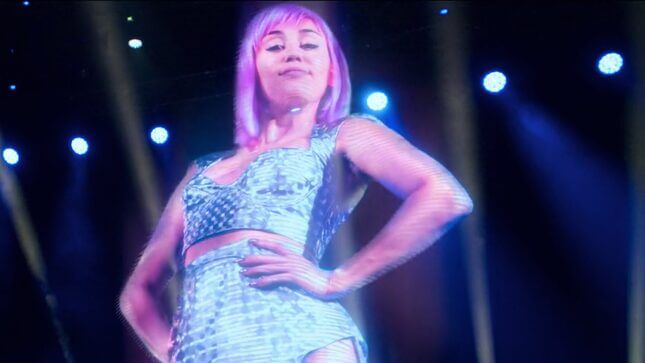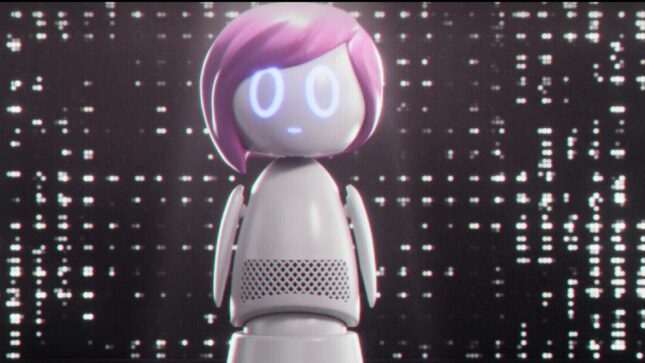

I cannot stop listening to “On a Roll,” the pop song featured heavily in Episode 3 of the latest Black Mirror. It is Nine Inch Nails’s “Head Like a Hole” interpolated into pop—lyrics by Black Mirror co-creator Charlie Brooker, music by Isobel Waller-Bridge—with a tiptoeing synth and delectable harmonies in the low timbre of Miley Cyrus, who’s seen some shit. “I’m stoked on ambition and verve,” she sings acerbically, through a red-carpet-ready smile. “I’m gonna get what I deserve.”
Others have written about how the episode, titled “Me, You, and Ashley Too,” uses pop music as a stand-in for inauthenticity and rock and punk as an avatar for emotional truth, a false dichotomy that backfires in the same way it backfired in A Star Is Born. (Like Lady Gaga’s “Why Did You Do That,” the song is, ironically, one of Cyrus’s best in years.) But its analysis of the way capital-centered empowerment feminism has encroached into culture to the detriment of women and non-binary femmes is dead-on, even sophisticated in the fashion of the best Black Mirror episodes.
-

-

-

-

-

-

-

-

-

-

-

-

-

-

-

-

-

-

-

-

-

-

-

-

-

-

-

-

-

-

-

-

-

-

-

-

-

-

-

-









































